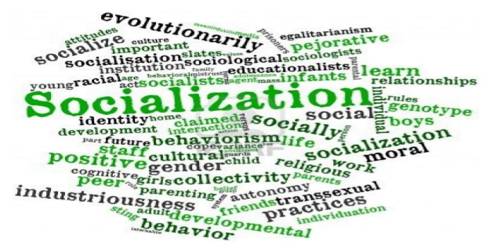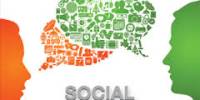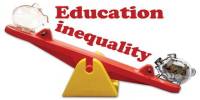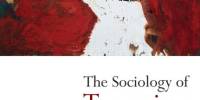Socialization is known as the process of inducting the individual into the social world. It is the means by which human infants begin to acquire the skills necessary to perform as functioning members of their society. The term socialization refers to the process of interaction through which the growing individual learns the habits, attitudes, values, and beliefs of the social group into which he has been born.
Positive socialization and Negative socialization:
Positive socialization is the type of social learning that is based on pleasurable and exciting experiences. We tend to like the people who fill our social learning processes with positive motivation, loving care, and rewarding opportunities. Negative socialization occurs when others use punishment, harsh criticisms, or anger to try to “teach us a lesson;” and often we come to dislike both negative socialization and the people who impose it on us.
Ideally, socialization is the process whereby, through contact with other human beings, the helpless infant, gradually becomes a positively self-aware, knowledgeable human being, skilled in the ways of a given culture and enabled to participate in society in a constructive manner (Giddens et al. 2009:104).
Socialization has many effects on individual behavior and personality. First, it is integral to forming personalities in children. The very nature of socialization dictates that some beliefs and attitudes are reinforced and that there is only selective exposure to other possible attitudes. Social connections are important to happiness, health, and overall feelings of connectivity to society. Lack of these connections can lead to isolation, decreased self-esteem, and a shorter lifespan. The negative effects of loneliness can start to set in within just over one day of not socializing. Children are thus given a set of acceptable behaviors and attitudes from which to form their personalities, creating a firm boundary of possibilities for personality formation.
The socialization process has an enormous impact on children and teens in the context of the learning process. Family, school, peers, mass media, and religion each play a role in the collective process we term education. Parents must recognize that each of these agents of socialization maximizes the role of education in our children’s lives. Anything less is an abdication of our responsibility as adult role models for our children and for future generations.
Information Source::
















